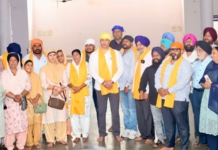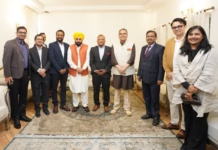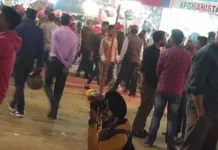Historic decision on “Hijab” by Karnataka high court
Kanwar Inder Singh/ royalpatiala.in
The Karnataka High Court pronounced its judgment in the hijab case today that ruled that the hijab is not “essential” to Islam in a landmark case that could have implications across the country.
The court also upheld a state government order that had banned headscarves in classrooms after a Karnataka college’s decision in January to bar entry to Muslim girls wearing the hijab had sparked protests.
The verdict follows a months-long, divisive row over the hijab (a hijab is a veil (cloth) worn by certain Muslim women in the presence of any male outside of their immediate family or sometimes by men, which covers the head and chest.)

The matter reached the high court after some Muslim women protesters filed petitions arguing that India’s constitution guaranteed them the right to wear headscarves.
Today, the three judge bench comprising Chief Justice Ritu Raj Awasthi, Justice Krishna S Dixit and Justice JM Khazi delivered their verdict on the ongoing hijab controversy. Ahead of the hijab row verdict, Section 144 was imposed in Bangalore and educational institutions were also closed.
The court, which has over the past few weeks been hearing a clutch of petitions challenging the hijab ban, said it had asked itself three questions. The three questions were:
1. Whether the wearing of the hijab is essential religious practice under Islam,
2. Whether the prescription of school uniform is violative of rights, and
3. Whether the Karnataka government order of February 5 (which barred students from wearing clothing that could ‘disturb peace, harmony, and law and order), apart from being incompetent and manifestly arbitrary, violates Articles 14 and 15.
The court’s answer to these questions were as follows:
1. Wearing of hijab my Muslim women not part of essential religious practice under Islam.
2. Prescription of school uniform is a reasonable restriction that students can’t object.
3. The government has the power to issue an order.
March 15,2022












